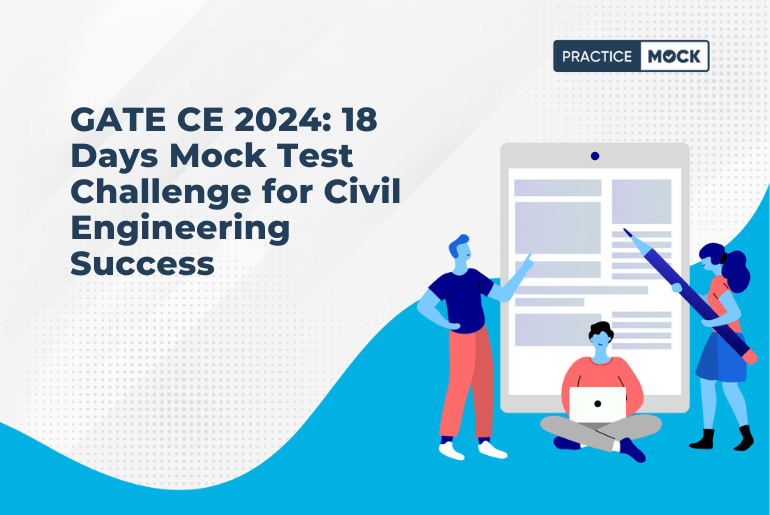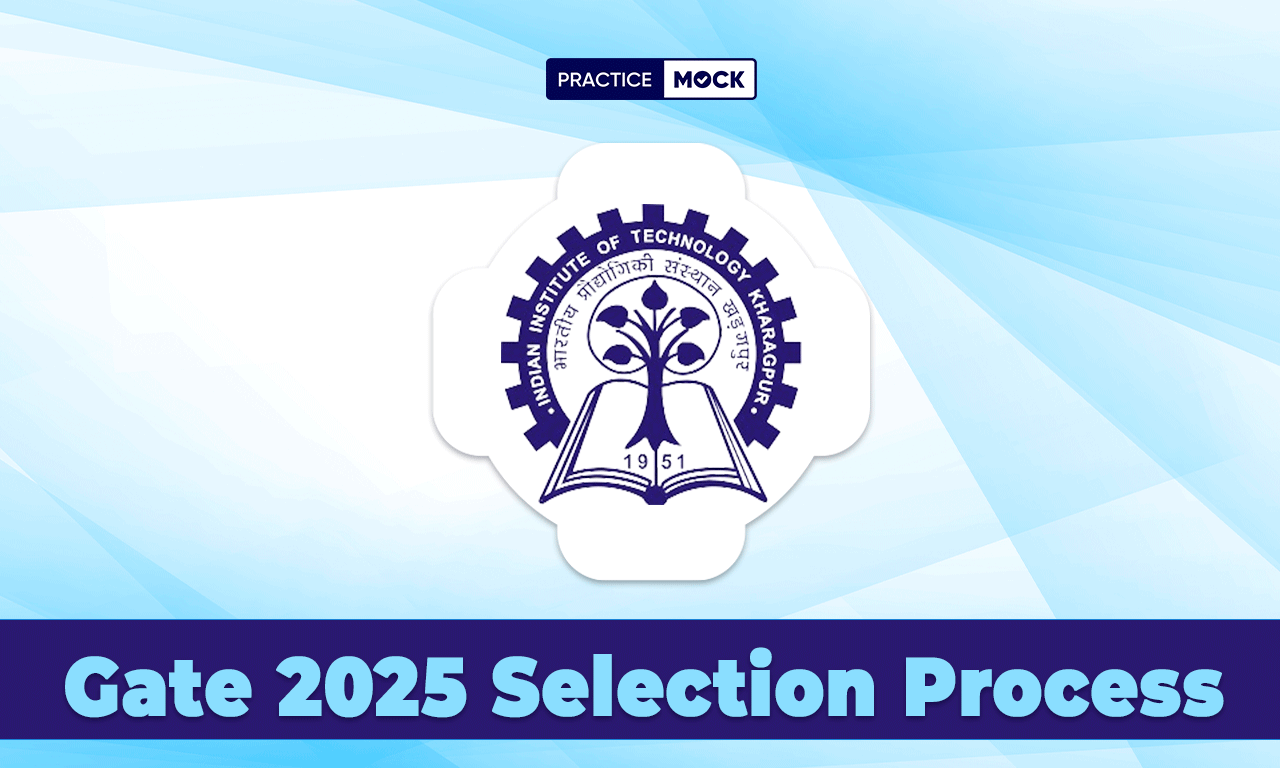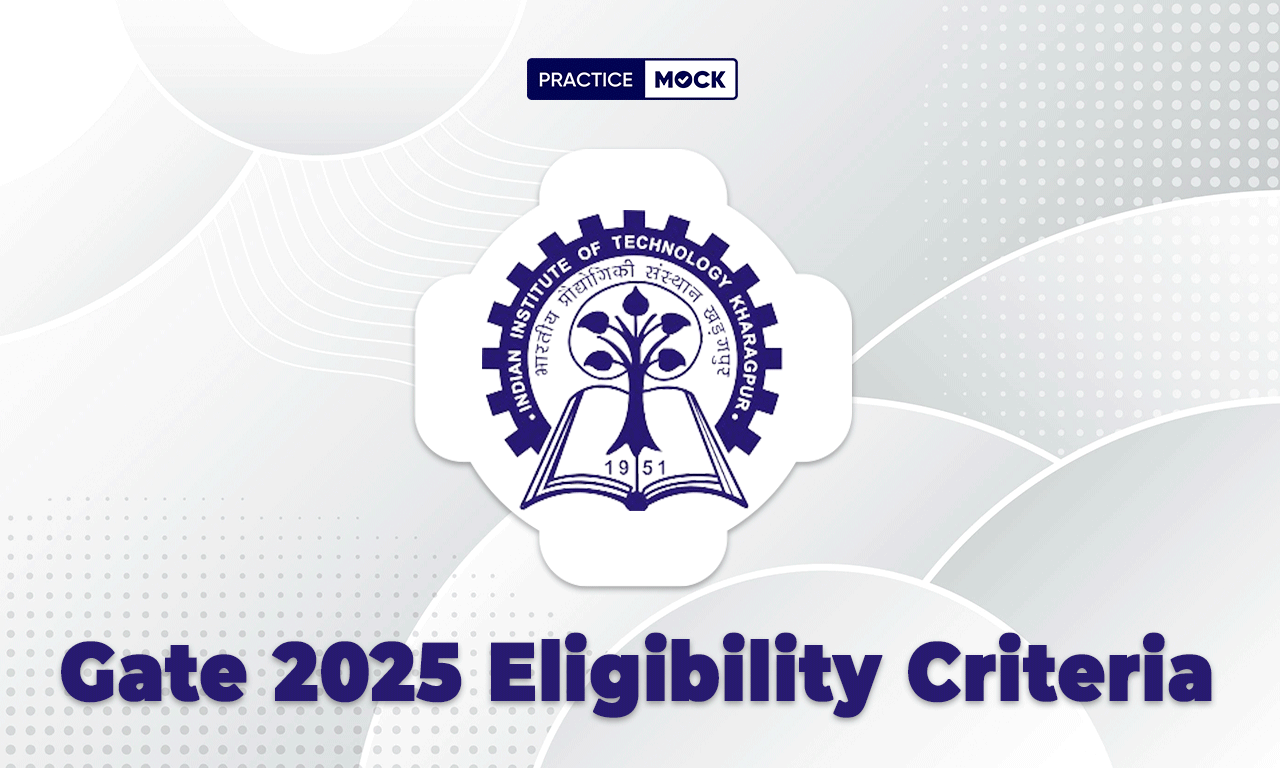GATE CE 2024: 18 Days Mock Test Challenge for Civil Engineering Success


The GATE CE 2024 Exam is slated to be conducted on February 3, 4, 10, and 11. Just 18 days to go for the exam! Have you covered all the topics that make up the GATE Civil Engineering 2024 syllabus? We have a result-oriented challenge that can pave your way to success! Want to accept the ultimate challenge for the 18-Day GATE 2024 Mock Test Challenge? Want a power-packed roadmap to conquer every facet of Civil Engineering? If yes, come with us and quickly dive deep into Engineering Mathematics, Structural Analysis, Environmental Engineering, and more, meticulously crafted to maximize your understanding. But wait, the journey begins with a Free GATE Mock Test—your diagnostic tool for greatness. Assess, adapt, and ace the exam!
Unleash the scholar in you and turn these 18 days into your victory. Are you ready to transform into a GATE champion? Let’s go!
Take a Free GATE GATE CE Mock Test 2024 & Know Your AIR & Improve 10X👈🏆
Also, read: GATE 2024: Best GATE Books for Best Preparation
GATE Civil Engineering 2024: 1-Week Mock Exam Drills for a Solid Revision
| Day 1 | Get 1 Free GATE 2024 Mock Test |
| Day 2 | GATE 2024 Mock Test 2 |
| Day 3 | Get Subject Test |
| Day 4 | GATE 2024 Mock Test 3 |
| Day 5 | GATE 2024 Mock Test 4 |
| Day 6 | Get Topic Test |
| Day 7 | GATE 2024 Mock Test 5 |
GATE 2024 Exam Date Overview
Candidates who are going to appear for the GATE 2024 Exam must check the detailed exam schedule tabulated below:
| GATE 2024 Exam Dates | |
| Events | Important Dates |
| GATE 2024 Notification PDF Release | 4 August 2023 |
| Starting of GATE 2024 Registration | 30 August 2023 |
| Last Date for GATE 2024 Registration | 29 September 2023 |
| Extended Window for GATE 2024 Registration (by registered applicants) with an additional late fee of Rs. 500 | 20 October 2023 |
| GATE 2024 Application Correction Window | 7 to 11 November 2023 |
| GATE 2024 Admit Card Announcement | 4 January 2024 |
| GATE 2024 Exam Date | 3,4,10, & 11 February 2024 |
| GATE 2024 Response Sheet Release | 16 February 2024 |
| GATE 2024 Answer Key Release | 21 February 2024 |
| GATE 2024 Answer Key Challenge Window | 22 to 25 February 2024 |
| GATE 2024 Result | 16 March 2024 |
| Availability of GATE 2024 Scorecard | 23 March 2024 |
GATE 2024 Exam Date
Below, candidates can find the GATE 2024 Exam Dates to take reference.
The shift-wise GATE 2024 Exam Dates are tabulated below:
| Date/Day | Session | Time (IST) |
| February 3, 2024 (Saturday) | Forenoon Session (FN) | 09:30 AM to 12:30 PM |
| Afternoon Session (AN) | 02:30 PM to 05:30 PM | |
| February 4, 2024 (Sunday) | Forenoon Session (FN) | 09:30 AM to 12:30 PM |
| Afternoon Session (AN) | 02:30 PM to 05:30 PM | |
| February 10, 2024 (Saturday) | Forenoon Session (FN) | 09:30 AM to 12:30 PM |
| Afternoon Session (AN) | 02:30 PM to 05:30 PM | |
| February 11, 2024 (Sunday) | Forenoon Session (FN) | 09:30 AM to 12:30 PM |
| Afternoon Session (AN) | 02:30 PM to 05:30 PM |
GATE 2024: 18 Days Mock Test Challenge for Civil Engineering Success
| Day | Subjects/Topics | Study Plan |
| 1-2 | Engineering Mathematics | – Matrix algebra, Systems of linear equations, Eigen values, and Eigen vectors. – Functions of single variable, Limit, continuity, and differentiability. – Mean value theorems, local maxima and minima. – Taylor series, Evaluation of definite and indefinite integrals. |
| 3-4 | Engineering Mathematics (cont.) | – Partial derivatives, Total derivative, Gradient, Divergence, Curl. – Vector identities, Directional derivatives. – Line, Surface, and Volume integrals. – First-order (linear and nonlinear) ordinary differential equations. |
| 5 | Engineering Mathematics (cont.) | – Higher-order linear ODEs, Euler-Cauchy equations. – Fourier series, separation of variables. – Solutions of one-dimensional diffusion equation. – Sampling theorems, Conditional probability, Descriptive statistics. |
| 6 | Structural Engineering (Engineering Mechanics) | – System of forces, Free-body diagrams, Equilibrium equations. – Internal forces in structures, Frictions, Centre of mass. – Free Vibrations of undamped SDOF system. |
| 7 | Structural Engineering (Solid Mechanics) | – Bending moment and shear force. – Stress and strain relationships. – Simple bending theory, Flexural and shear stresses. – Shear centre, Uniform torsion. |
| 8 | Structural Engineering (Structural Analysis) | – Analysis of trusses, arches, beams, cables, and frames. – Displacement methods: Slope deflection, Moment distribution. – Influence lines, Stiffness, and flexibility methods. |
| 9 | Construction Materials and Management | – Structural Steel: Composition, material properties. – Concrete: Constituents, mix design, short-term, and long-term properties. – Types of construction projects, Project planning, and network analysis. |
| 10 | Concrete Structures | – Working stress and Limit state design concepts. – Design of beams, slabs, columns. – Bond and development length, Prestressed concrete beams. |
| 11 | Steel Structures | – Design of tension and compression members, beams, and beam-columns. – Connections: simple and eccentric, beam-column connections. – Concept of plastic analysis – beams and frames. |
| 12 | Soil Mechanics | – Three-phase system, Phase relationships, Index properties. – Unified and Indian standard soil classification. – Permeability, Seepage through soils, Flow nets. – Principle of effective stress, Shear Strength, Mohr’s circle. |
| 13 | Foundation Engineering | – Sub-surface investigations, Earth pressure theories. – Stability of slopes, Stress distribution in soils. – Shallow foundations, Deep foundations. |
| 14 | Fluid Mechanics | – Properties of fluids, fluid statics. – Continuity, momentum, and energy equations. – Potential flow, Laminar and turbulent flow. – Flow in pipes, pipe networks. |
| 15 | Hydraulics | – Forces on immersed bodies, Flow measurement. – Dimensional analysis, Channel Hydraulics. – Energy-depth relationships, specific energy, critical flow. |
| 16 | Environmental Engineering | – Water and Wastewater: Basics of water quality standards. – Air Pollution: Types of pollutants, air quality standards. – Municipal Solid Wastes: Characteristics, engineered systems. |
| 17-18 | Transportation Engineering | – Geometric design of highways, Traffic studies. – Highway Pavements: Highway materials, Design factors. – Geotechnical Engineering: Principles of surveying, Errors, Maps. – Complete Revision |
Take a Free GATE GATE CE Mock Test 2024 & Know Your AIR & Improve 10X👈🏆
GATE Civil Engineering 2024: 18 Days Revision Strategy for Success
The Graduate Aptitude Test in Engineering (GATE) is a crucial examination for civil engineering aspirants. To maximize your preparation in the final 18 days, a well-structured revision plan is essential. Let’s delve into five tips to make the most of this short yet critical period.
1. Organized Subject-wise Revision
Divide your 18 days into specific subjects and allocate time accordingly. Begin with a solid foundation by dedicating the initial days to engineering mathematics. Follow the prescribed study plan, covering topics like matrix algebra, limits, differentiability, and ODEs. Ensure you grasp the fundamental concepts as they form the backbone of various engineering disciplines.
For structural engineering, allocate dedicated time to understand forces, equilibrium equations, and internal forces in structures. Progress systematically through topics such as bending moment, shear force, stress-strain relationships, and structural analysis. Allocate specific days to each subject to ensure comprehensive coverage.
2. Active Learning Techniques
Engage in active learning to enhance comprehension and retention. While revising, create concise notes, mind maps, or flashcards for each topic. Summarize key formulas and concepts, making the information more digestible. Visualization tools, like diagrams and flowcharts, can aid in understanding complex structural and mathematical concepts.
Practice problem-solving actively. Utilize resources like previous year question papers and mock tests to identify weak areas. The act of solving problems not only reinforces your understanding but also helps in managing time during the actual examination.
3. Mock Tests for Simulation of Exam Conditions
Mock tests play a pivotal role in refining your preparation strategy. Set aside dedicated days for full-length mock tests to simulate exam conditions. Follow the given study plan, and on days 17-18, engage in a complete revision while taking a full-length mock test.
These tests serve multiple purposes. Firstly, they help you manage time effectively, ensuring you can answer all questions within the stipulated timeframe. Secondly, they provide insights into your strengths and weaknesses, allowing you to fine-tune your focus in the remaining days. Analyze your performance, identify recurring mistakes, and revise accordingly.
Take a Free GATE GATE CE Mock Test 2024 & Know Your AIR & Improve 10X👈🏆
4. Strategic Focus on Key Topics
In the limited time available, prioritize key topics that carry significant weight in the GATE syllabus. For instance, in construction materials and management, emphasize steel and concrete properties, mix design, and project planning. In soil mechanics, focus on phase relationships, index properties, and shear strength, as these are frequently tested areas.
Identify high-scoring topics in each subject and allocate more time to revise them thoroughly. Understanding the weightage of different topics allows you to strategically allocate your time, ensuring you cover the most critical areas comprehensively.
5. Revision Techniques for Environmental and Transportation Engineering
Devote special attention to environmental and transportation engineering in the final days. For environmental engineering, understand the basics of water and wastewater, air pollution types, and solid waste characteristics. Employ mnemonics or memory aids to remember key standards and concepts.
In transportation engineering, emphasize geometric design, traffic studies, and highway pavements. Utilize visual aids, charts, and diagrams to simplify complex concepts. Ensure a comprehensive understanding of geotechnical engineering principles, surveying, and mapping.
Take a Free GATE GATE CE Mock Test 2024 & Know Your AIR & Improve 10X👈🏆
How Mock Tests Enhance Revision
Mock tests provide a real-time simulation of the GATE exam environment. Here’s how they contribute to your revision strategy:
1. Time Management
Practice with mock tests helps you develop a sense of time, enabling you to allocate it wisely during the actual exam.
2. Identifying Weaknesses
Regularly taking mock tests helps identify your weak areas. Analyzing your performance helps in focusing on improving these specific aspects during revision.
3. Exam Pattern Familiarity
Becoming familiar with the GATE exam pattern through mock tests reduces anxiety on the actual exam day. It helps you adapt to the question format and structure.
4. Building Stamina
The GATE exam is a marathon, and mock tests contribute to building the mental and physical stamina required to maintain focus throughout the exam duration.
5. Performance Analysis
Detailed analysis of mock test results allows you to understand your strengths and weaknesses in each subject. This data aids in fine-tuning your revision plan.
An organized, subject-wise revision plan coupled with active learning techniques and strategic focus on key topics will significantly enhance your preparation for GATE Civil Engineering 2024. Integrating mock tests into your strategy ensures that you not only revise effectively but also enter the exam hall with confidence and readiness. Remember, consistency is key, so adhere to your revision schedule diligently.
Take a Free GATE GATE CE Mock Test 2024 & Know Your AIR & Improve 10X👈🏆
Takeaway
Don’t forget to complement the 18-Day Mock Test Challenge given above with Mock Test practice. Take 1 Free GATE Mock Test to know how you can gauge your progress boost your confidence and improve exponentially before the actual exam.
Recent Posts
IBPS PO 2025 Free Study Resources, Attempt Now!
Here we are providing the IBPS PO 2025 free preparation resources, Candidates can get prelims…
IBPS PO Study Plan 2025 for 1 Month
The Institute of Banking Personnel Selection (IBPS) has released the IBPS PO 2025 notifications for…
100 + DI Repeated Questions for RRB PO 2025, Check How to Solve It Easily?
In this article we are providing the 100 + DI Repeated Questions for RRB PO…
RRB NTPC Salary 2025: In-Hand, Job Profile, Career Growth
RRB NTPC Salary 2025 details provided in this blog. Candidates can check the In-Hand salary,…
All One Word Substitutions Asked In SSC CGL PDF, Download for Free
In this blog, we have provided All One Word Substitutions Asked In SSC CGL Exams…
Expected Puzzle Questions for RRB PO 2025, Check Tips to Solve Them Easily
In this article we are providing the Expected Puzzle Questions for RRB PO 2025. Candidates…


